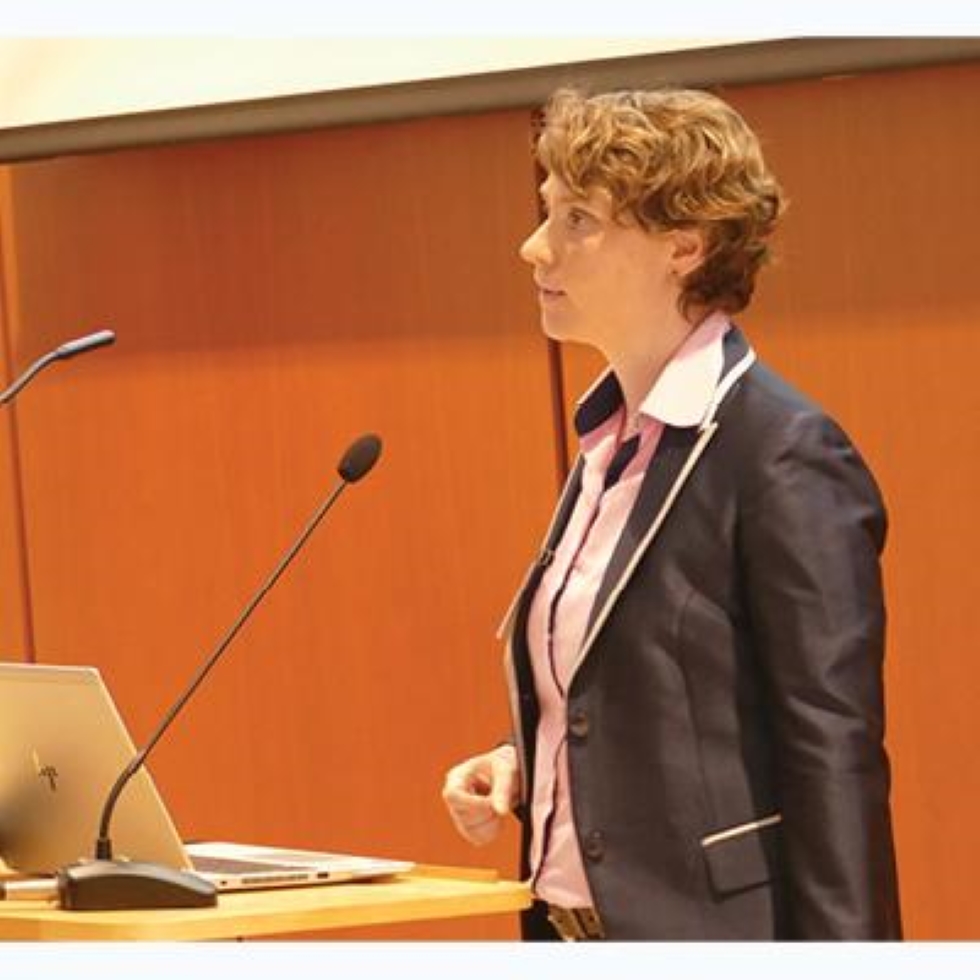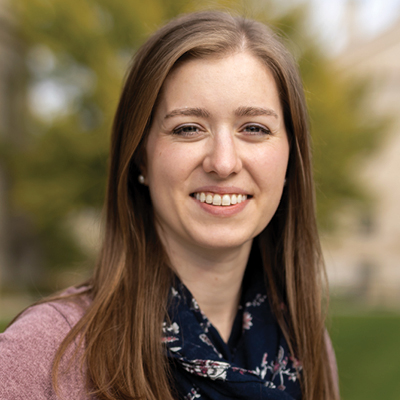For a long time, Nadja Ging-Jehli, a postdoctoral scientist in computational psychiatry and cognitive neuroscience, had an idea for an AI-powered digital platform that would enable clinicians to assess patients’ mental flexibility in a much more holistic manner than traditional neurocognitive tests. She had the vision and the technical skills to develop such a platform, but, as a postdoctoral scientist, lacked the resources to strike out on her own. “At my career stage, there were limited opportunities to independently pursue and fully develop my own ideas,” she said.

Then, in the summer of 2023, Ging-Jehli learned about the ARC program. ARC, which stands for Advancing Research Careers, is a new program designed to empower and support postdoctoral brain scientists on their path to becoming independent researchers. Funded through the National Institute of Neurological Disorders and Stroke (NINDS) and administered by the Carney Institute, ARC provides each participant $25,000 in seed funding for a research project, and an additional $6,000 for conference travel and scientific training. It stands out within Brown as a rare program that gives postdoctoral scientists funds independent of the lab they work in, enabling them to pursue their own line of research and generate ideas and data to take with them into the next phase of their career.
Ging-Jehli used the funds to hire two software engineers, a designer and a consultant to develop and pilot a prototype of the platform, which she then presented to clinical faculty at the National Institutes of Health (NIH). These clinical faculty quickly became her mentors and Ging-Jehli is currently incorporating their feedback into the platform’s design, with the goal of testing it out in clinical settings.
“I learned a lot about leadership,” she said. “The entire package ARC offers helped me to really dream bigger.”
With the establishment of the ARC program, Carney was responding to a national trend in the sciences: women and persons excluded due to ethnicity and/or race (PEERs) disproportionately leave the academic pipeline as they progress through academic training.
“In general, there are few structured programs for postdocs, and rarely do they address the challenges women and PEERs often face during career advancement,” said Kristin Webster, Carney’s Associate Director of Training and Development. “These groups traditionally receive less NIH funding and data show that they leave research careers at higher rates than their peers. With ARC, we wanted to create programming that is tailored to each postdoctoral scholar and that supports them to go after the kinds of scientific achievements and professional development experiences that matter most to them.”
The postdoctoral phase of a scientist’s career is uniquely challenging. “Midway through a postdoc is kind of an odd space where there's not a lot of grant opportunities available,” explained Darcy Diesburg, a postdoctoral researcher in computational psychiatry and an ARC scholar. “You’re too advanced for the NIH training grants that funded you as a brand new postdoc and not quite ready to apply for the one which helps you advance from postdoc to investigator. And yet, you're at a very strategic time where there are additional skills you want to obtain.”

For Diesburg, who studies neural mechanisms of inhibitory control in humans and how those mechanisms change in neuropsychiatric disease and treatment, that new skill was magnetic resonance spectroscopy. This technique would add to the toolbox of methods she is using to study EEG signals, thought to be a useful measurement of inhibitory signaling, in human brains. Gathering this real-world data is crucial to Diesburg’s ability to test out and enhance her computational modeling of human EEG signals, but getting up to speed involves first practicing with and then running an experiment using an MRI machine, which is very costly to operate.
Diesburg is using her ARC funding to attend magnetic resonance spectroscopy workshops and run her experiment in Carney’s fMRI facility. Having these independent funds, she said, also makes a difference when it comes to feeling like and being perceived as an equal partner when she teams up with more senior researchers for portions of her project. The pilot data she is going to acquire will substantially strengthen her application for an NIH Pathway to Independence Award, as well as other grants she plans to apply for.
ARC also connects participants to mentors inside and outside of Brown by tapping into the rich professional networks of a dozen faculty members from multiple departments across the Brown brain science community. Participants cite this aspect of the program as nearly as impactful as the funding.
“ARC is enabling me to conduct my independent EEG experiments with guidance from Dr. Linda Carpenter, chief of the Mood Disorders Program at Butler Hospital. I’ve gotten to learn to lead a translational lab directly from her, and I wouldn’t have had that otherwise,” said Diesburg.
Audra Van Wart, Director of University Postdoctoral Affairs, has high hopes for ARC, which she sees as getting at the heart of what a postdoctoral appointment should be all about.
“I always tell incoming postdocs at orientation, ‘Yes, you’re going to achieve publications and fellowships, but the primary end product of your postdoc is you.’ So it makes me really happy to see ARC scholars using the program to incorporate new elements into their training that make them unique and distinct.”

Postdoctoral scientist John Hernandez used his ARC funding to transform his area of specialization. As a Ph.D. student, Hernandez studied the science of addiction using the lens of behavioral neurophysiology. The further he took his research, the more he wanted to branch into motivational neuroscience, to get at not just the behavioral components of addiction, but also the brain circuit and genetic underpinnings of it. His postdoctoral placement in the Kaun Lab, where he studies which brain circuits are directly contributing to alcohol preference and avoidance, got him part of the way. From there, ARC helped propel him into genetics, supporting him in learning how to design single nuclei transcriptomics experiments, which revealed exciting preliminary data that could help unlock genetic treatments for those suffering from substance use disorders.
Hernandez’s data snagged him a seat at the table at the National Institute on Drug Abuse (NIDA) Genetics Consortium. The presentation he gave there attracted the attention of several highly regarded scientists who study the genetics and epigenetics of substance use–researchers Hernandez had long admired.
“Their science is amazing,” he said, “but before I was able to gather my data, I had no way to develop a collaborative conversation. Now, because I was able to present my findings at the consortium, we are beginning to collaborate on future projects.”
Hernandez pointed to the ease of communication he feels amongst these new collaborators, all of whom are women, as well as with his advisor, Associate Professor of Neuroscience Karla Kaun, as a significant factor in his decisions around the next phase of his career.
“Science is really hard,” he said. “When you finally get meaningful affirmations that you haven’t historically gotten, it changes your outlook–even to the point where I’m like, ‘Maybe I do want to be an academic.’"
ARC is now accepting applications for the 2024 cohort; contact kristin_webster@brown.edu for more details.
ARC is supported by NIH grant R25NS124530.